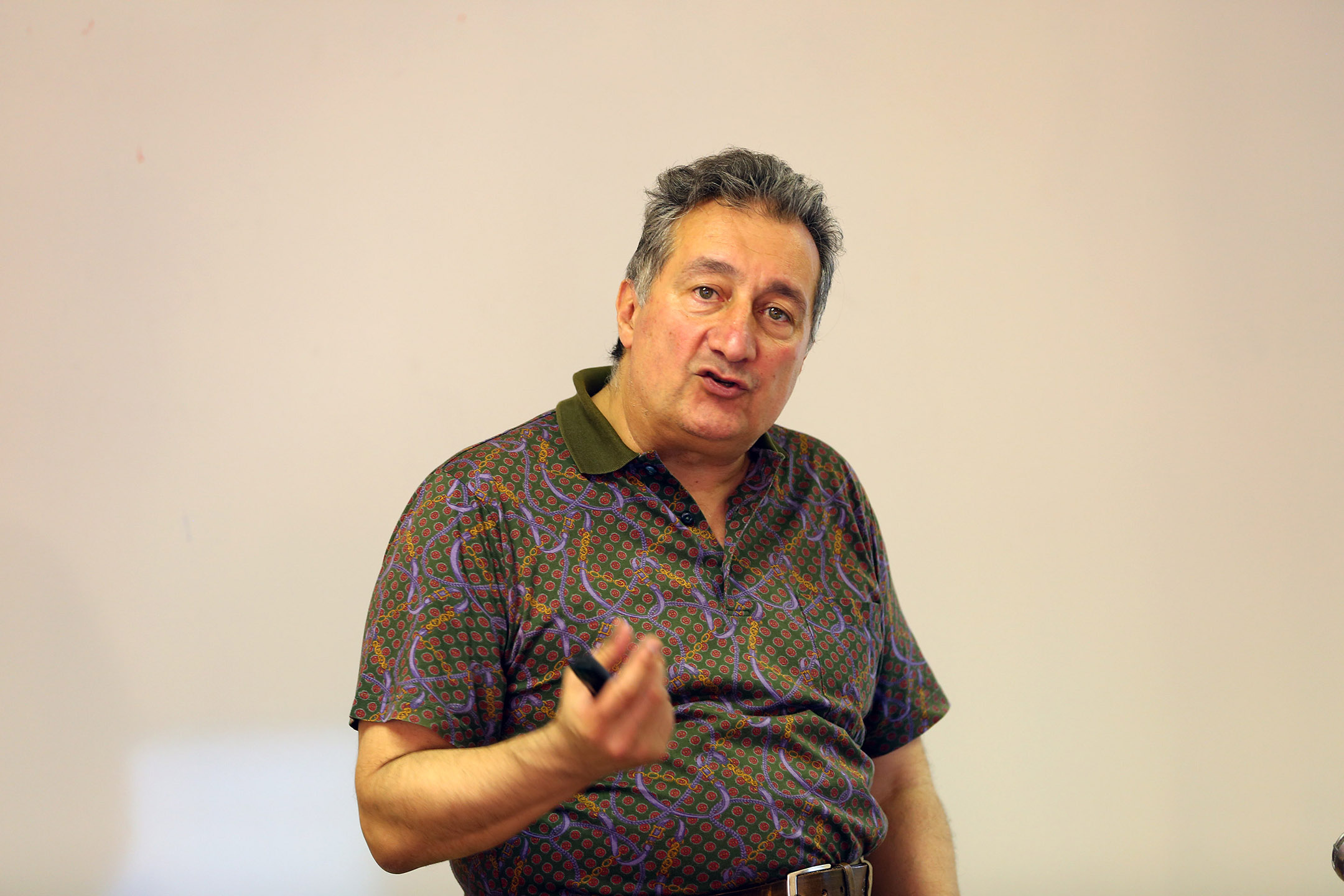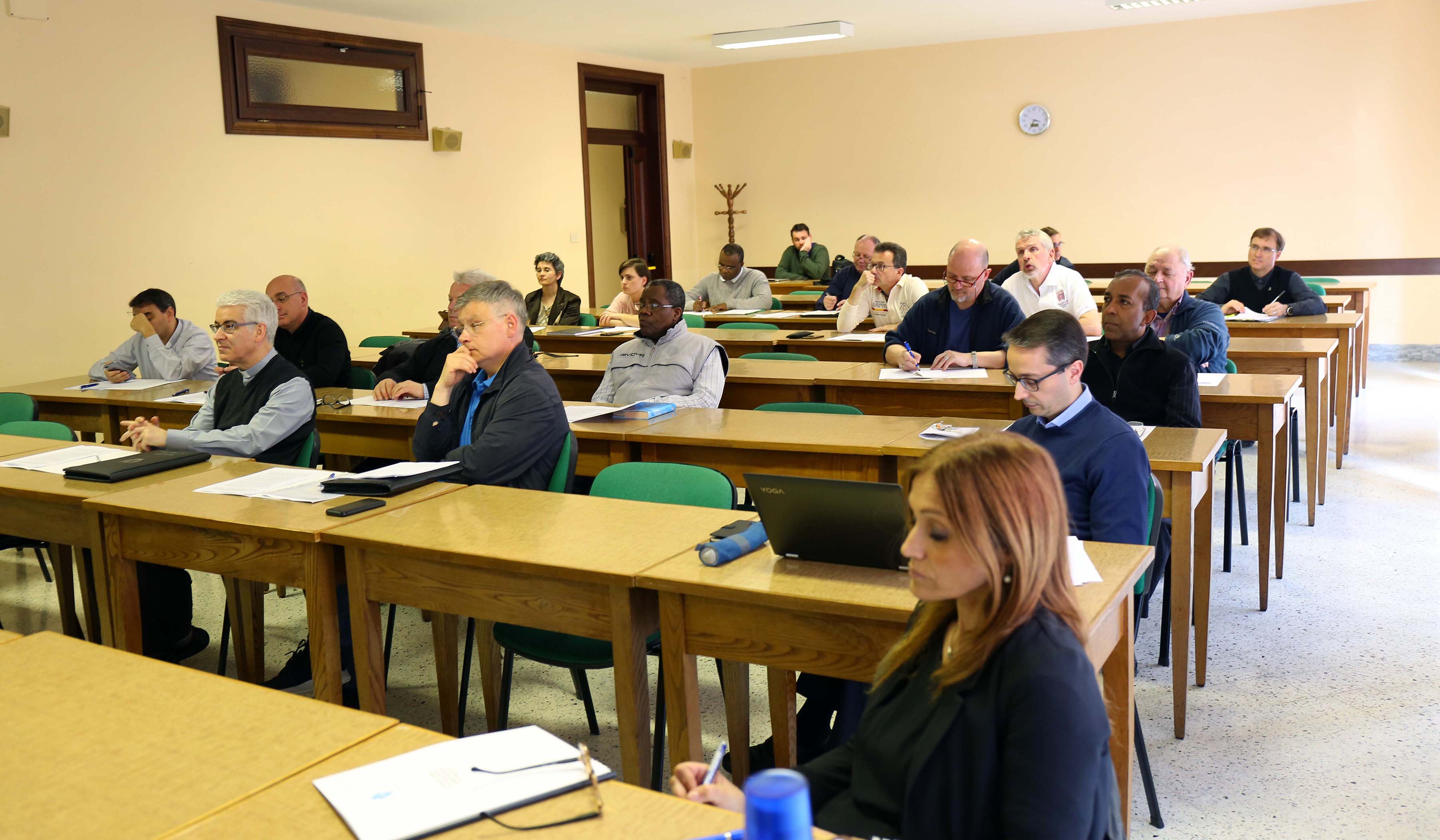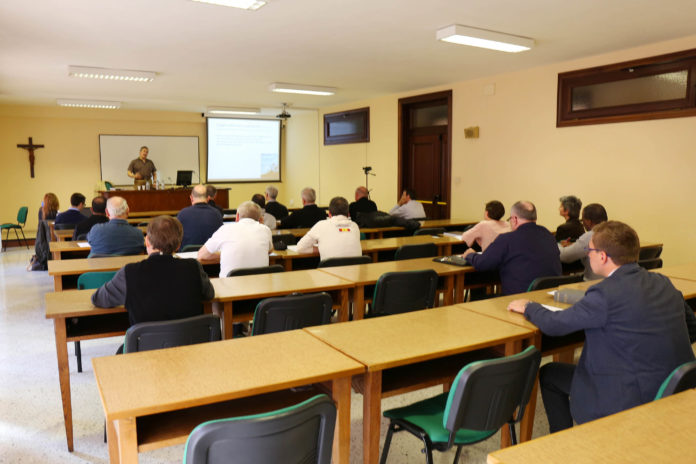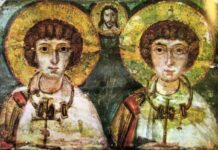(Rome) Teachers’ training remains a very urgent subject and a subject of renewed interest within the academic landscape of both state and pontifical universities. It is precisely starting always from this current instance, that in the afternoon of May 23rd, from 3 to 7 pm, several professors of the Alphonsian Academy happily attended the seminar to deepen didactic questions and renewed teaching strategies. The beautiful and lively lesson of prof. Andrea Porcarelli, associate professor in general and social pedagogy at the University of Padua, who offered those present a very interesting picture of the specificity characterizing teaching techniques, also deepening the human and constitutive generative dimension, which makes teaching an art never static, but always perfectible and renewable.
 This intense seminar, which involved a significant number of teachers until the end of the meeting, took place in three progressive sessions. In the beginning prof. Porcarelli clarified the most significant nodes of both historical and theoretical identity of teaching, highlighting its dynamic identity over time and underlining its specific constituent. Teaching cannot be solved in the exclusive and more standardized form that commonly identifies it as an individual lesson delivery by the teacher, but also qualifies as an intense relational process with the cognitive and metacognitive learner at the same time, in which skills multiple, both intuitively achieved and technically pursued, highlighting how knowledge, knowing how to teach, knowing how to be, appear inseparable aspects of the human reality and identity of the teacher.
This intense seminar, which involved a significant number of teachers until the end of the meeting, took place in three progressive sessions. In the beginning prof. Porcarelli clarified the most significant nodes of both historical and theoretical identity of teaching, highlighting its dynamic identity over time and underlining its specific constituent. Teaching cannot be solved in the exclusive and more standardized form that commonly identifies it as an individual lesson delivery by the teacher, but also qualifies as an intense relational process with the cognitive and metacognitive learner at the same time, in which skills multiple, both intuitively achieved and technically pursued, highlighting how knowledge, knowing how to teach, knowing how to be, appear inseparable aspects of the human reality and identity of the teacher.
 The second session involved a more working transition, in which the techniques explained in the first phase came to life and became operational in the group works, during which the teachers concretely tried their hand, deepening the theme addressed in the first part of the lesson. Here, in fact, that patience activity that is communication as confrontation and dialogue, with the active moment of the word, but also the patience welcoming silence of the other, which is listening, is concretely pronounced. From this mutual confrontation in the classroom, the results of the community reflection that gave rise to the phase of the third session. That of collating the data offered by the groups, with the clarification of both the doubts and the problems that emerged, but also of the positive aspects and made even more clear about their teaching activity. Thanks to the lesson of prof. Porcarelli who finally supervised and commented on the results, offering the present valuable strategies and indicating possible paths.
The second session involved a more working transition, in which the techniques explained in the first phase came to life and became operational in the group works, during which the teachers concretely tried their hand, deepening the theme addressed in the first part of the lesson. Here, in fact, that patience activity that is communication as confrontation and dialogue, with the active moment of the word, but also the patience welcoming silence of the other, which is listening, is concretely pronounced. From this mutual confrontation in the classroom, the results of the community reflection that gave rise to the phase of the third session. That of collating the data offered by the groups, with the clarification of both the doubts and the problems that emerged, but also of the positive aspects and made even more clear about their teaching activity. Thanks to the lesson of prof. Porcarelli who finally supervised and commented on the results, offering the present valuable strategies and indicating possible paths.
It was an intense and very productive afternoon, therefore, illuminated by the maxim of St. Albert the Great, who wanted to be from the beginning of the meeting a method and a delivery by prof. Porcarelli confirming the amiable community that is the basis of the search for truth:
in dulcedine societatis quaerere veritatem.
Cristiana Freni







